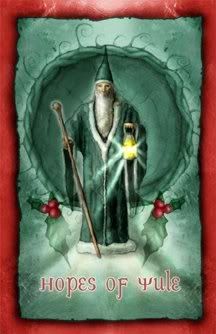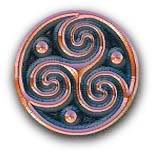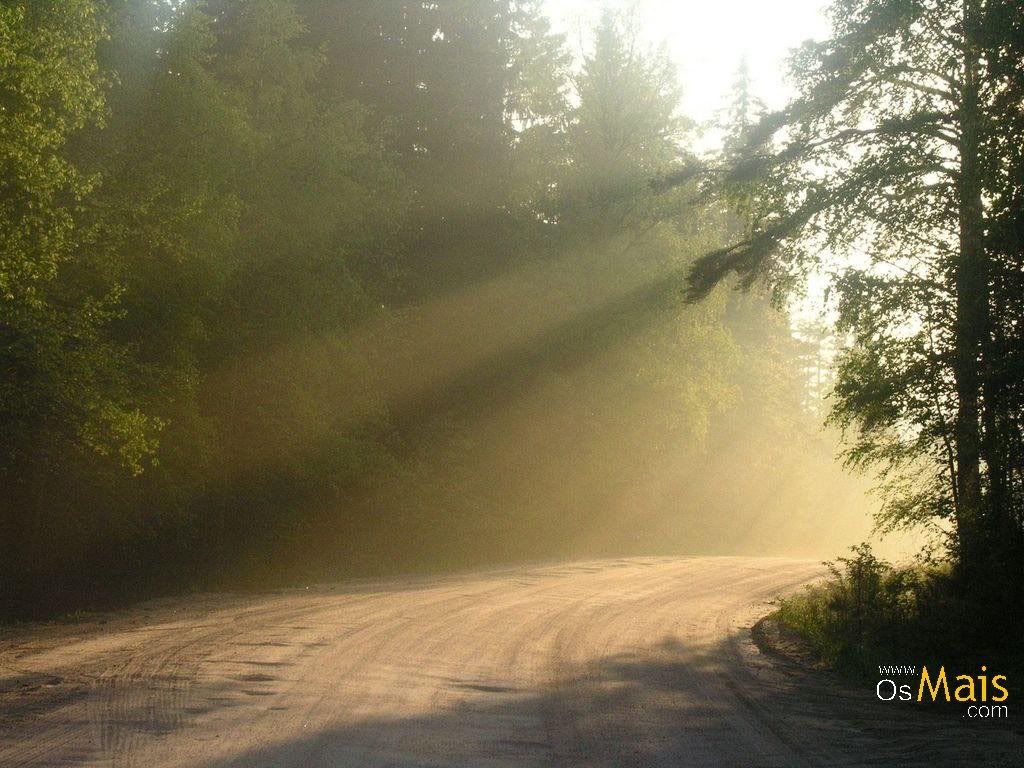 This was a text interview from either in late 2009 or early 2010, which was not conducted by us, but was published by the Odinic Rite. However, since the OR has removed it from their press service website, and we were able to retrieve it, we wanted to post it here so it would not be lost.
This was a text interview from either in late 2009 or early 2010, which was not conducted by us, but was published by the Odinic Rite. However, since the OR has removed it from their press service website, and we were able to retrieve it, we wanted to post it here so it would not be lost.
It's so interesting to examine how certain pre-Christian traditions overlapped one another. For example, how the old Gallic paganism (what we call "Cernism") overlapped with Odinism in the north and east or with the British Isles. Also, in this case, how Slavic paganism overlapped with Odinism. There are many common themes and symbols.
One interesting term used by the interviewee was "native believer," or anyone who believes in their specifically ancestral faith. Also interesting is a reference to the Celtic people who lived in Poland in ancient times. Especially around Slenza mountain, as he mentioned. Celtic roots are such a common thread among European peoples, hence the Celtic solar cross found all over from the ancient world.
An Interview with the Slavic Faith Association
OR: What is the name of your organization and what is it’s purpose? What are it’s aims?
SFA: The full and official name of our organization is The West – Slavic Denominational Association “Slavic Faith” (ZZW “Słowiańska Wiara”) but we’re commonly known as “Slavic Faith” or “Slavonic Faith”. Our aim is to deepen our Slavic beliefs, to create a unique philosophy of life and sustain our heritage. Over the past few years we have created an inimitable community of people dedicated to this aims.
OR: When was your organization formed?
SFA: Unofficially the organization was formed nearly 3 years ago. First ideas had been in our minds since about 2004. It took time to find other really devoted neopagans from all around Poland. I became a native-believer about 12 years ego. And I don’t remember such a successful enterprise over the previous decade. This has taught me to be patient.
OR: What are the beliefs of the Slavic Faith?
SFA: Let me quote the first point of the Denomination of Slavic Faith, the most important of our declarations:
“We believe in the Slavic Gods. We believe in the wisdom, goodness and beauty hidden under their countenances. Slavic Gods are the founts of life, power and happiness. Belief in our Gods is the heritage which we continue.”
OR: What are the values of the Slavic Faith?
SFA: The eighth point says:
“We are the defenders of our values, families and community. We defend the right to live on our own territory; we defend the space of our civilization. This duty arises from the most obvious laws of nature.”
The whole 12 paragraphs of Denomination of Slavic Faith is available here:
www.slowianskawiara.pl/wyznanieanglia.html
OR: What are some of the symbols used in Slavic Paganism?
SFA: We have just sent some documents to the polish ministry of internal affairs (MSWiA). these include lists of Slavic pagan symbols. We want to create official documents which specify these symbols and allow us to protect them by law, like the Christian cross, the Star of David or the Crescent. These symbols in most cases have a Solar origin. Some of those aren’t widely known, for e.g. God’s Hands. Picture below:
OR: What is the relevance of the fylfot/swastika to Slavic Paganism? What about the triskelion?
SFA: Of course the swastika was widely known and has been used in Poland for hundreds of years. It has appeared on house ornaments, carvings, costumes. Before World War Two it was even used as an ornament of distinction by some polish corps. But one of the Solar symbols is specially important for us. This symbol is the Swarzyca. A carved Swarzyca symbol appeared in a wall stone on the outside of a collegiate church in Kruszwica (central Poland). We think that this stone block was part of pagan temple from around a thousand years ago.
The Triskelion has also been used in Poland. The Triskelion from the picture below comes from Plock (Central Poland) from the XII century.
OR: What are your holy days and what do you do to celebrate them?
SFA: During the year we celebrate 5 of the biggest ceremonies in Poland. 4 of them are: the autumnal/ vernal equinox and the summer/winter solstice plus Ancestors Day which is around 1st November.
In addition to these five we also celebrate two more international festivals. The most important celebration in Slovakia is Peruns Day at midsummer and the Mokosz celebration in Czech Republic (autumn).
We also have some special events such as the swearing in of a new member of the association as well as Slavic weddings and many more. The Slavonic Faith organizes them all. OR: What types of rituals do you perform?
OR: What types of rituals do you perform?
SFA: Every celebration contains different types of rituals, prayers, songs and offerings.
Every stanza, every word, every gesture expressed by the priests (we call them Kaplan) has a deep meaning. It’s all based on mythology and our reflections. There is no place for improvisation. When someone is coming to our ceremony unprepared, he might only see… well I would say “poetic performance” and nothing more. But even for people without the necessary knowledge, those festivals always make a big impression.
OR: How important are your ancestors?
SFA: Two of the most important festivals in our calendar are: Slavic Spring (March equinox) and Ancestors Day. Ancestors are very important indeed and I’m not talking only about our community. For all Polish people, the memories of our ancestors is something extraordinarily important. There were so many thousands of martyrs in our history, that the memories of them are still alive. This has really nothing to compare with Western Europe. 1st November is National Ancestor Day. On this day all Polish people go to the graveyards to light candles on the tombs of relatives. If you could see satellite pictures from Poland on that day, it would looks like the whole country is burning.
OR: How important are your folk (tribe/people)?
SFA: I became a native believer because these things were the most important in my life. My community provides me with an environment where I can be a better person. I want to be a better person to help and to support my community.
OR: How are men and women viewed in Slavic Paganism?
SFA: "Slavic Faith is an Oak (symbol of male element in nature) and Linden (symbol of female element) braided together, it’s family it’s union”. Women and Men have different roles to fulfill. I’m glad there are more and more women in our community every year (it was always less women than men). In this way we pursue the full harmony. Of course we are against mixing up the natural roles of both sexes in society. We’re traditionalist.
OR: What do you believe about death and life after death?
SFA: I must refer again to the Denomination of Slavic Faith:
“We assume that the death of a man ends a certain stage. It is the condition of the transformation into a new form of existence. It is the shedding of the old, exhausted form. The noble and persistent ones will be rewarded with entering into continuously higher and higher levels of existence, more conscious, more significant and closer to the Gods.”
It’s a very complex problem (of course it is), but what we try to avoid is giving people simple answers. This is the Holy Book, read it, do what we tell you and you gonna be saved – at least that is how monotheistic religions work. We don’t know exactly what happens after death. The core of pagan philosophy is to keep trying to understand the world around us. We have to improve our knowledge. If you want achieve something you must refer to your strength and will, you won’t get anything valuable for free. That is why our religion is never gonna be very popular. We don’t give simple answers for everyone.
OR: Are there any sites which are particularly holy to Slavic Paganism? Could you tell us about them?
SFA: There is many of these places. But I wish to tell about one specific place. It’s the Slenza mountain, 30 km south of Wrocław. It is only 718 meters above see level, but it’s an absolutely magical place. It’s the pagan heart of Poland. It’s a place where you can find remnants of Celtic tribes, a place where pagan rituals have been performed for hundreds of years after the christening of Poland. And a place with a few thousand years old Solar Altar, even an armed cross carved on a big megalithic block hidden somewhere half-way up the Mountain. At the foot of the Slenza, the Slavic Faith organize ceremonies.
OR: How do you see Slavic Paganism in the modern world? Is it relevant to today?
SFA: It is relevant. Relevant for my community and in a cultural aspect relevant for my country. I would say it’s also relevant for Europe. European culture is slowly dying. Careless about heritage and our roots, Europe is becoming another cosmopolitan place. We are probably one of the last bastions of tradition and culture. And I always emphasize, that we are not pagans from Xth century. We are modern living people. We not trying to live the way people lived thousand years ago. We struggle with today’s problems and the neopagan religion helps us deal with the present. OR: How does your faith affect your day-to-day life?
OR: How does your faith affect your day-to-day life?
SFA: I’m one of the fifteen sworn members who are trustees. We have a lot to do. Sometimes the Slavic Faith is like a second job for me.
OR: What do you see for the future of your faith? What role will it play?
SFA: I think the future is bright for us. As an organization we are growing up quickly. We are going to buy some land which will let us organize celebrations without any permission. We want to publish books about our beliefs in the near future and also to persuade the government to enlarge the content of school books about paganism. We want to officially register the Slavic Faith as a legal entity. We also want to strengthen cooperation between pagans from all Slavic countries and also cooperate with other European native believers. (We were thinking about creating an international association to help people to cooperate all around Europe) And many other ideas.
OR: How does society react to you? You are based in a country that is known for it’s Catholicism. Does that create any problems? Have you ever had to deal with discrimination or persecution? If so how do you deal with it?
SFA: I must say, we never have any problems with Catholics. So far so good. We had one serious incident when the police didn’t allow us to celebrate the Spring Festival in a public park. (I don’t think that this was religious harassment, rather pure stupidity) But we know how to execute law, so this case is now being considered in the public prosecution service.
OR: Do you see any similarities between Slavic Paganism and Odinism? The mythology and/or Gods? The value systems? Etc.
SFA: I must say 90% of values represented by Odinism and Slavic Paganism are the same. Heroism, family, the maternal instinct, friendship, loyalty, bravery, honesty. It can’t be different, after all we descended from the same cultural circle . All differences are based on different cultural foundations. And of course these differences are very important. These differences make us unique. What is good for a Buddhist not necessarily must be good for an American. What is good for an American Indian is almost certainly wrong for a German. Monotheistic religions assume the all human kind is this same (at least ought to be). As children of one God we should learn from one holy book and have the same system of values. Sometimes it looks like some insane idea of mixing up everyone to create some amorphous cultural pulp. We should learn from each other, which doesn’t mean trampling out our own culture.
Similarities between Gods ? Well, there is so many common notions, and many of them are so evident. Thor – God of warriors, who sends thunder strokes from heaven. Slavonic God – Perun – God of warriors, who sends thunder strokes from heaven. I can give hundreds of these examples. Sometimes I’m really surprised by how much we have in common.
OR: Where can one find more information about your faith in general and your organization in particular?
SFA: Unfortunately there is no much English language literature about Slavic mythology. This is obviously the fault of the Slavs themselves. We know a huge number of really good scientific publications which have never been translated into English. As an association we have to take action; in the future we’ll translate the most valuable works into English and other European languages.
The simplest way to meet us is to click on: www.slavicfaith.com Here you can find the English (simplified) version of our website. For more news about our activities you can contact ours representatives via the e-mail addresses available on this webpage. We willingly provide information about our activities.
OR: Do you have anything you would like to add?
SFA: I really wish to see you one day at any of our festivals. As native believers we are a really small bunch of people. We don’t even compare to any of the monotheistic communions. That’s why it is so important to cooperate. And by cooperation I mean all kinds of intellectual, spiritual and moral support.
Slavic Faith Association
Przemysław Mrugacz – Executive Member
.

No comments:
Post a Comment